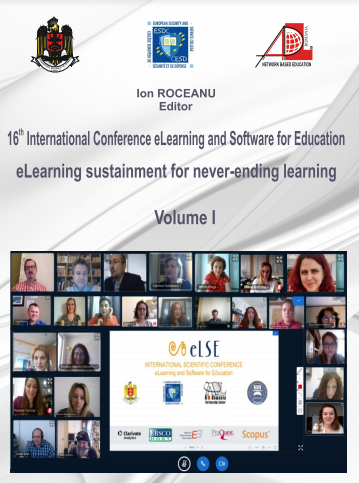MOOC CONTENT ASSESSMENT: ANALYSIS OF LIBRARY PRODUCTS AND PARTICIPATORY SERVICES IN MOOCS
MOOC CONTENT ASSESSMENT: ANALYSIS OF LIBRARY PRODUCTS AND PARTICIPATORY SERVICES IN MOOCS
Author(s): Omar Larouk, Marina. V. GaranovichSubject(s): Library operations and management, Electronic information storage and retrieval, ICT Information and Communications Technologies, Distance learning / e-learning, Pedagogy
Published by: Carol I National Defence University Publishing House
Keywords: Open educational resource (OER); service assessment; documentation access (MOOC); learning online; library services; participatory services;
Summary/Abstract: The new free courses published on the web are diversified academic contents. These materials are called MOOC (Massive Open Online Courses) playing the role of document knowledge providers like libraries. Nevertheless, the desired goal is to generate collaboration between the learner and the producer of the knowledge, through the communication of the contents. We will compare the different services offered to users (students, academics, etc.) by MOOCs such as: MIT-OpenCourseWare, COURSERA and FUN-MOOC in comparison with library catalogs of the type worldCat.org. An evaluation of information services, library services, participation services and Information Retrieval is proposed in this article. We will focus our assessment on the macro-criteria as essential: - personalized access services, library services, participatory services (social networks, etc.), and reference services related to documentary products. Finally, we note that most portals MOOCs are content to serve as a database, offering good content, without developing of real functionality of library, collaborative, or documentary research for its users, as proposed by the gates of the libraries. We will compare the services of these MOOCs with those of digital libraries such as WorldCat, which offers documentary services to users.
Journal: Conference proceedings of »eLearning and Software for Education« (eLSE)
- Issue Year: 16/2020
- Issue No: 01
- Page Range: 111-118
- Page Count: 8
- Language: English

